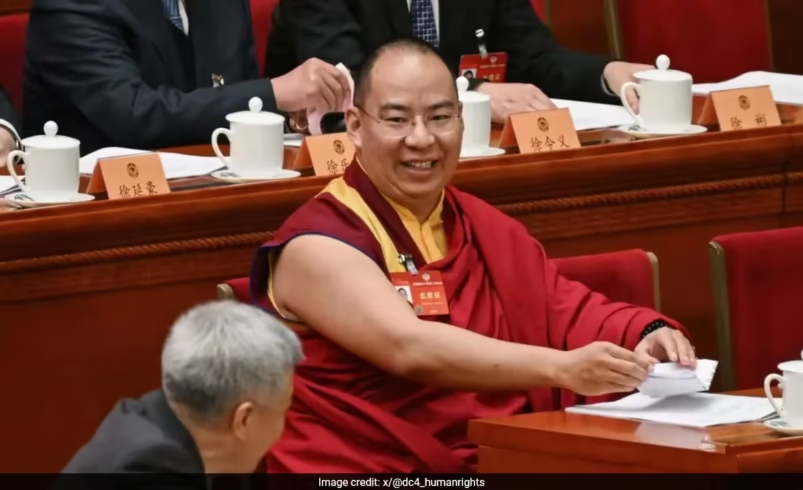Understanding Gyaltsen Norbu: China’s Appointed Panchen Lama
- July 8, 2025
- 0

The ongoing debate over the succession of the Dalai Lama has intensified with China’s appointment of Gyaltsen Norbu as the 11th Panchen Lama. The 14th Dalai Lama has asserted that only the Gaden Phodrang Trust in India has the authority to recognize his successor, dismissing any external interference. However, China’s Foreign Ministry insists that the succession must adhere to Chinese laws and historical conventions. This has led to a complex situation where China has positioned a young Tibetan, Gyaltsen Norbu, as the second-highest spiritual leader in Tibetan Buddhism, aiming to align the religion more closely with Chinese ideologies. Gyaltsen Norbu was appointed by China in 1995, replacing the Dalai Lama’s choice, Gedhun Choekyi Nyima, who disappeared shortly after being named and has not been seen for three decades. Norbu is known for his allegiance to the Chinese Communist Party and is frequently featured in state media, endorsing government policies in Tibet. Despite his official status, he lacks widespread support among ethnic Tibetans who view him as a political figure rather than a spiritual leader. As an adult, Norbu has taken on a more prominent role within China’s political landscape. He is a member of a top Chinese political body and regularly participates in significant events in Beijing and Tibetan regions. Recently, he met with Chinese President Xi Jinping, pledging to promote ethnic unity and advance the “sinicisation of religion.” During this meeting, Xi urged Norbu to uphold patriotic and religious traditions and contribute to building a unified Chinese nation. The appointment of Norbu is seen by many experts and members of the Tibetan exile community as part of China’s strategy to control the future reincarnation of the Dalai Lama. The current Dalai Lama, who fled to India in 1959 following an unsuccessful uprising against Chinese rule, is considered a separatist by Beijing. He has stated that his successor will be born outside China, in what he describes as the “free world.” Nonetheless, China maintains that it will determine the reincarnation of all Tibetan Buddhist lamas. This contested appointment highlights the broader geopolitical struggle over Tibet’s religious and cultural autonomy. As China seeks to consolidate its influence over Tibetan Buddhism, tensions continue between Beijing’s ambitions and the aspirations of Tibetans for religious freedom and self-determination.